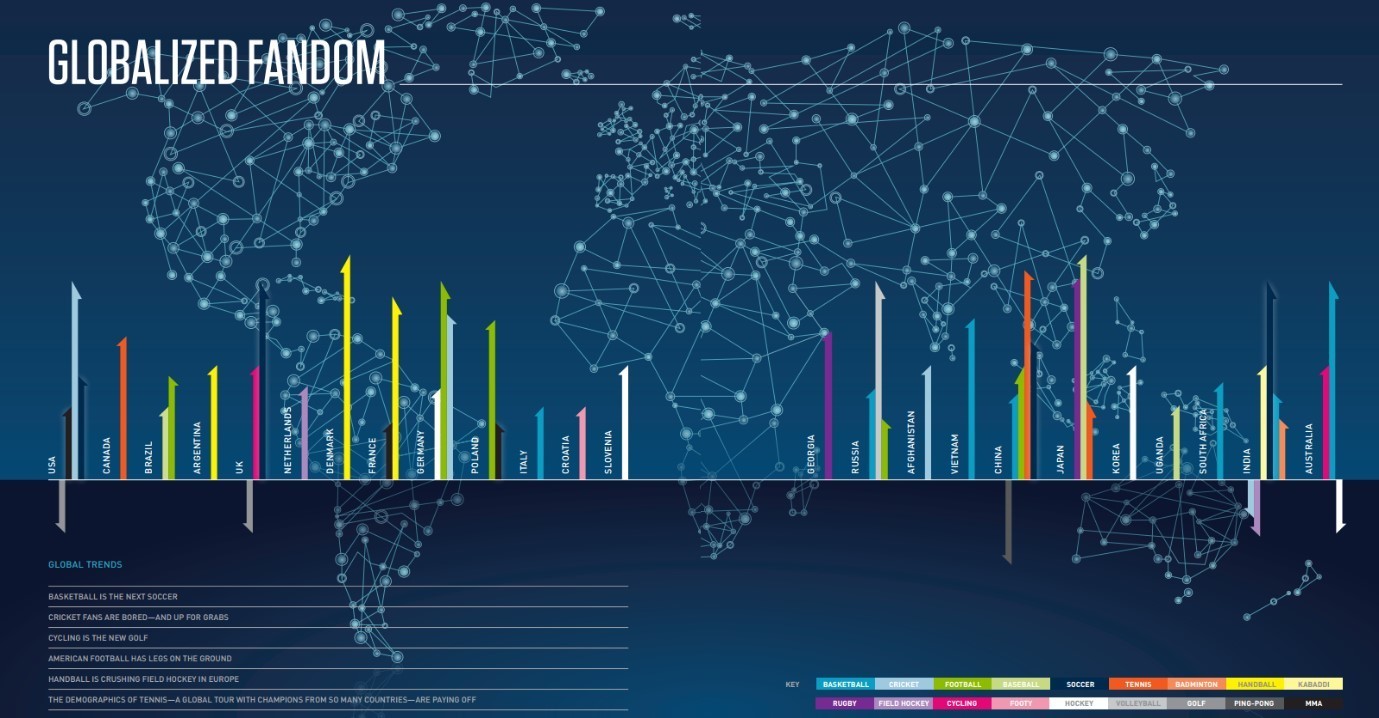Technology might be changing the world, but sports will stay the same, right?

By 2020, 7 billion people will be connected to the internet, representing several billion new sports fans. Image: REUTERS/Edgar Su

Get involved with our crowdsourced digital platform to deliver impact at scale
Stay up to date:
Emerging Technologies
While technology may be changing the world around us, sport will always stay the same, won't it? The answer to that question is a resounding no, according to a new report which predicts sweeping changes to the way sport is played and consumed around the world.
From ‘neurocoaching’ - training player’s brains to deliver ever-better physical performance - to the convergence of traditional sport and virtual competitions, the Future of Sports report looks at how almost every aspect of sport could transform. Here are six areas predicted to undergo a revolution.
Smartphone saturation
By 2020, 7 billion people will be connected to the internet, representing several billion new sports fans joining the global marketplace for the first time.
Meanwhile, 5th-generation wireless coverage will give the world untethered connectivity at speeds necessary for streaming immersive virtual reality at 60 frames per second. This will drastically raise the potential audiences and revenue for every sport.
Artificial Intelligence
Coaches will have access to an ever-increasing stream of data to help them shape game strategies and real-time decision making.
Game scenarios will be simulated by active, independent decision-making AI models and powerful analytics models will be self-evolving using machine learning.
With sensors proliferating in jerseys, athletic wear and equipment there will unprecedented insights into performance which also provide a never-ending stream of micro-outcomes for sports bettors to wager on.
Bioinformatics and health
As low-cost gene sequencing goes mainstream, teams will build genetic performance profiles to personalize each player’s nutrition and fitness protocols.
Meanwhile, in stadiums virus-hunting nanobots, applied via an inert spray at the entry and exit gates, would return fans and players home with fewer germs than when they arrived.
Digital manufacturing
3D printing and manufacturing will drastically reshape the sports supply chain. Better products will be designed more quickly and delivered in near real time.
In-stadium 3D printing will allow teams to personalize memorabilia for fans, while commercial printing make highly personalized player equipment design and manufacturing possible.
Immersive computing
Augmented reality will give fans a live viewing experience, with the availability of instant information and statistics about each moment and each player on the field.
Virtual reality will allow fans to feel like they are playing in the game themselves with in-stadium panoramic camera systems creating fully immersive sensations of the games. Sports coverage and computer gaming will converge, with the clear boundary between them fading.
Blockchain
Blockchain technology will enable fluid, dynamic contracts that will radically change the way players, teams, leagues and arenas structure their working relationships.
Blockchain-powered digital rights management can track every mashed-up highlight clip through its reuse, making sure the original rights holders get paid while allowing them to share the wealth with fan-producers who remix and popularize the content.
The report says that all of these developments are approaching their ‘slingshot’ moment, the point at which they burst from the domain of the very few into mass-market application. Taken together, they signify seismic change in the way we play, watch and otherwise consume sport in the future.
Don't miss any update on this topic
Create a free account and access your personalized content collection with our latest publications and analyses.
License and Republishing
World Economic Forum articles may be republished in accordance with the Creative Commons Attribution-NonCommercial-NoDerivatives 4.0 International Public License, and in accordance with our Terms of Use.
The views expressed in this article are those of the author alone and not the World Economic Forum.
Related topics:
The Agenda Weekly
A weekly update of the most important issues driving the global agenda
You can unsubscribe at any time using the link in our emails. For more details, review our privacy policy.
More on Emerging TechnologiesSee all
Juliana Guaqueta Ospina
April 11, 2024
Nikolai Khlystov and Gayle Markovitz
April 8, 2024
Simon Torkington
April 8, 2024
Victoria Masterson
April 4, 2024
Gareth Francis
April 3, 2024







